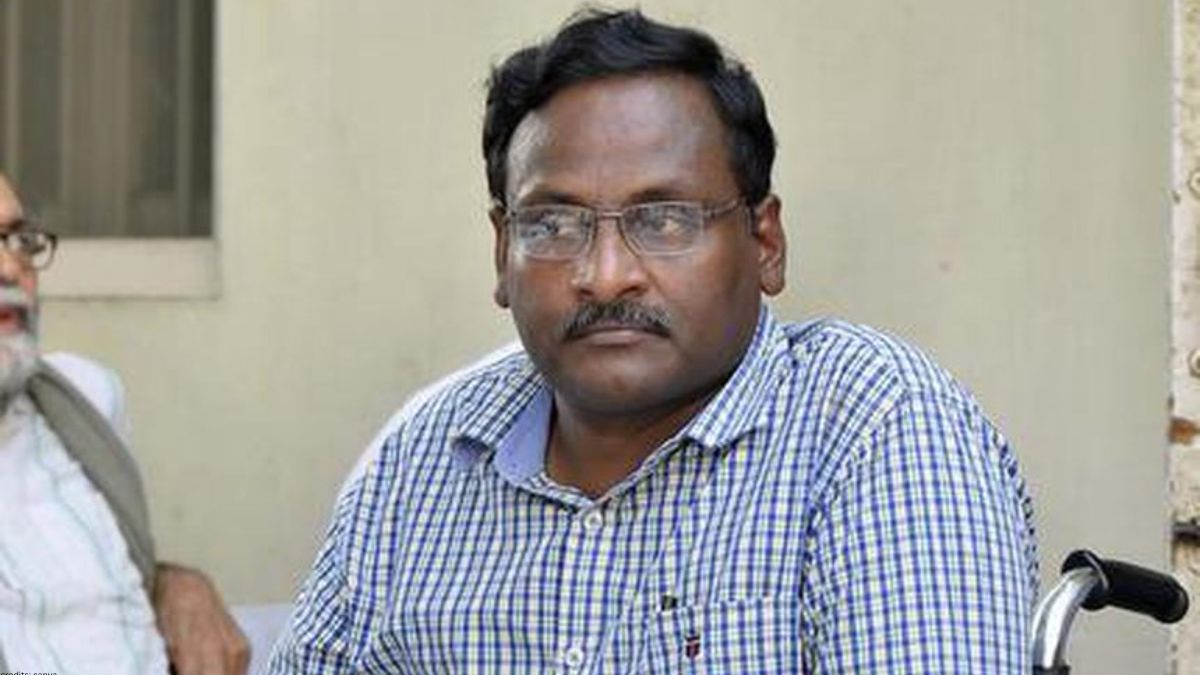G N Saibaba, a former professor of English at Delhi University, passed away on Saturday due to post-operative complications following surgery for gallbladder stones. He was 57 and had been undergoing treatment at Nizam’s Institute of Medical Sciences in Hyderabad.
G N Saibaba was a professor of English at Delhi University’s Ram Lal Anand College, a position he had held since 2003. Known for his activism and strong views on various social issues, Saibaba gained attention not only for his academic work but also for his alleged links to Maoist activities, which led to his arrest in 2014. His suspension from the college followed shortly after.
Born with a disability, Saibaba was wheelchair-bound, but this did not hinder his active involvement in human rights causes. His activism, however, attracted the scrutiny of law enforcement agencies, culminating in his arrest by the Maharashtra police on May 9, 2014, for alleged Maoist links. He was accused of arranging meetings between Maoist leaders and other accused individuals, including JNU student Hem Mishra and journalist Prashant Rahi. Saibaba was linked to the banned Communist Party of India (Maoist) and the Revolutionary Democratic Front, which the authorities claimed was a front organization for Maoist activities.
In March 2017, a sessions court in Maharashtra sentenced Saibaba to life imprisonment along with five others, convicting them of being involved in activities deemed as waging war against the state. His deteriorating health in prison, exacerbated by his physical condition, became a focal point for various human rights groups who called for his release on humanitarian grounds.
In March 2024, the Nagpur bench of the Bombay High Court acquitted Saibaba and his co-accused, setting aside the life sentences and ruling that the prosecution had failed to prove the case beyond a reasonable doubt. This decision was seen as a significant legal victory for Saibaba, who had spent several years in Nagpur Central Jail before being released shortly after the court’s ruling.
Despite the controversies surrounding his life, Saibaba remained an influential figure in academic and activist circles. His work as a professor and his involvement in social justice causes left a lasting impact on those who knew him. He passed away on October 12, 2024, at the age of 57, following post-operative complications after undergoing surgery for gallbladder stones at Nizam’s Institute of Medical Sciences in Hyderabad. His life was marked by both his contributions to academia and his prolonged legal battles, making him a figure of significant public interest in contemporary India.


